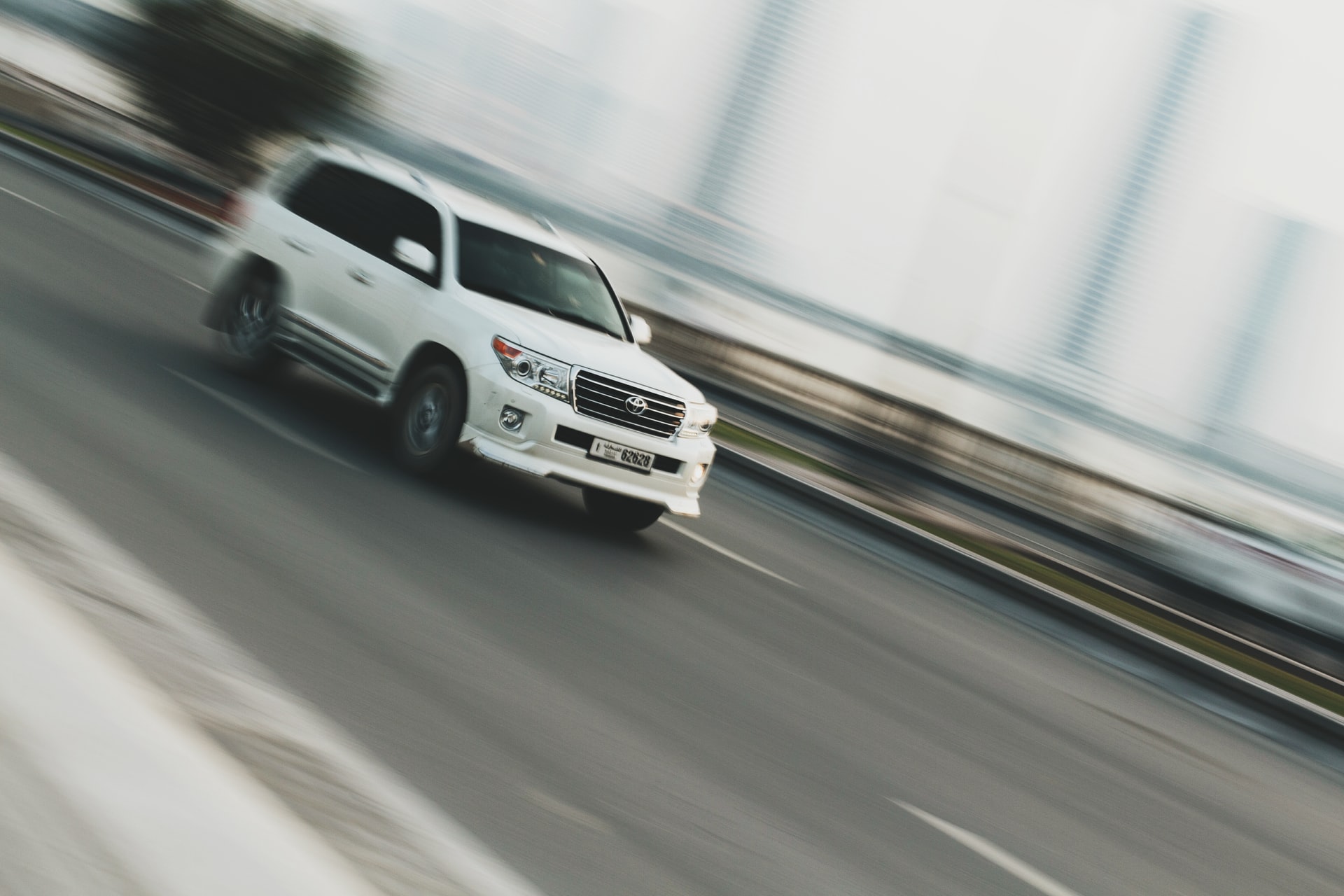You depend on your vehicle’s brakes to function correctly each time you get behind the wheel and take to the road. To stay in good shape, your brakes need regular maintenance. Failing to maintain the brakes can lead to permanent damage to your car and may put you in a dangerous situation if the brakes fail while you’re on the road. Pay attention to the following four warning signs that signal your vehicle needs a brake tuneup.
Your Vehicle Pulls To One Side When Braking

Image via Unsplash by shahzin_2903
If your car pulls to one side each time you apply the brakes, this problem could be the result of foreign materials present in the brake fluid, faulty brake calipers, or improperly aligned tires.
When debris enters your vehicle’s hydraulic system, unwanted particles can affect the braking pressure and result in uneven braking. In general, foreign matter in the brake fluid can damage your car if it isn’t removed.
If your vehicle pulls to one side when you brake, your brake calipers may also be to blame. They could be stuck or adding extra pressure to one of the brakes, and this uneven pressure distribution can affect the balance when your vehicle comes to a stop.
Improperly aligned tires may also contribute to this issue. Brake pads on vehicles with improperly aligned tires wear unevenly. The brake pad on a misaligned tire will wear down more rapidly than the brake pad on a correctly aligned tire. Over time, this reduced braking efficiency will result in one side of your vehicle slowing down more quickly than the other. This effect leads to the pulling feeling you experience when you apply the brakes.
You Hear Grinding Or Squealing Sounds When Operating The Vehicle
Grinding, squeaking, and squealing sounds can all indicate different problems with your vehicle’s brakes. When you detect these sounds, schedule an appointment to have your brakes inspected so that you can avoid potentially expensive vehicle repairs down the line.
Do you hear a high-pitched, metallic squeaking noise while your vehicle is in motion? Does the sound stop once you apply the brakes? The noise that you hear is likely the brake pad wear indicators coming into contact with the brake pad rotor. This squeaking sound signals that your car’s brake pads are worn out. Replace the brake pads as soon as you can so that they don’t cause damage to the rotors.
If you hear a grinding sound when you apply the brakes, this noise could indicate that your vehicle’s brake pads have worn through. The metal coming into contact with metal can cause grooves to develop in the brake rotor.
Grinding sounds could also mean that your rear brake drums if you have them are not properly lubricated. The brake shoe, the device that presses on the brake rotor to slow down the vehicle, could be scraping against metal contact components such as the backing plate.
Your Car Responds Poorly When Applying The Brakes
Does your car fail to respond well when you apply the brakes? Poor responsiveness could indicate a leak in your vehicle’s hydraulic system, which may lead to a decline in your car’s braking performance. As a result, the brake pedal will feel ‘soft’ when you apply the brakes, and you may not be able to fully control your vehicle.
A ‘soft’ brake pedal or a pedal that sinks to the floor may be caused by air or water that’s present in the brake fluid, a fluid leak in the system, or a malfunctioning master brake cylinder. Puddles of liquid on the ground underneath your parked vehicle can clue you into a potential problem with your car’s braking system.
If you believe that your brakes are performing poorly, it’s safer to have your vehicle towed rather than attempting to drive it. Driving a car with impaired brake responsiveness can be dangerous, particularly at high speeds.
Your Vehicle Shakes Or Vibrates When You Press The Brakes
If your vehicle vibrates excessively when you apply the brakes, you might have warped brake rotors. Your rotors may warp when your car experiences significant periods of continuous braking. The heat that builds up when you apply the brakes could cause uneven wear in the rotors, which can warp them permanently.
The resulting vibration you feel from your vehicle comes from the brake pads bumping against the surface of the rotors. This effect occurs when the brake pads can’t grip the metal on the rotors properly. Uneven brake pad contact reduces the overall efficiency of your car’s braking system. If you believe that your vehicle may have warped brake motors, get them inspected immediately to avoid future issues.
How Often Should You Have Your Car’s Brakes Inspected?
To make sure that your car comes to a safe stop when you apply the brakes, you’ll want to have your brake pads changed before they present problems like the ones mentioned above. In general, plan to have the brakes inspected at every oil change.
Your driving style and the typical driving environment, such as dense traffic or rough mountain terrain, both impact the life span of your vehicle’s brake pads. In general, replace the brake pads when they reach a service limit of about 0.1 inch.
We can’t emphasize this point enough: Don’t wait weeks or months to replace your vehicle’s brake pads after you observe the initial warning signs described above. Poorly maintained brakes are more than an expensive vehicle repair waiting to happen. They could contribute to a life-threatening accident. By paying attention to your car’s brakes now, you can ensure that they will operate efficiently and keep you and your family members safe.
At Panama City Toyota, we invite Toyota drivers like you to count on our Toyota service center for top-quality vehicle servicing. Our dedicated team of service specialists is here to help you enjoy years of reliable performance from your Toyota vehicle. Call us today at 850-769-3377. We look forward to seeing you soon!





